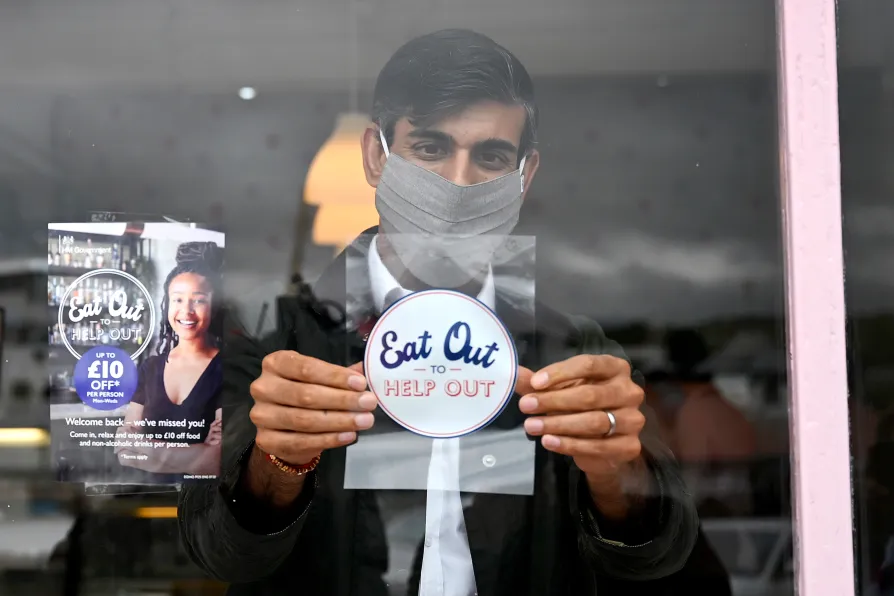Covid-19 Inquiry: Sunak brushes off concerns about his Eat Out to Help Out scheme
Labour pledges to appoint Covid corruption commissioner with powers to recover billions lost to fraudulent claims during the pandemic

 The Chancellor of the Exchequer Rishi Sunak places an Eat Out to Help Out sticker in the window of a business during a visit to Rothesay on the Isle of Bute, Scotland, August 2020
The Chancellor of the Exchequer Rishi Sunak places an Eat Out to Help Out sticker in the window of a business during a visit to Rothesay on the Isle of Bute, Scotland, August 2020
PRIME MINISTER Rishi Sunak brushed off concerns about his Eat Out to Help Out discount hospitality scheme during the first day of his appearance at the Covid-19 inquiry today.
But while Mr Sunak was denying the scheme helped spread the virus, the Labour Party pledged to appoint a Covid corruption commissioner with powers to recover the billions lost to fraudulent claims during the pandemic.
Shadow Treasury secretary Darren Jones said: “Billions of pounds of taxpayers’ money was lost to fraud and corruption during the pandemic on Rishi Sunak’s watch and yet the Conservatives are turning a blind eye and letting those responsible off the hook.”
Similar stories

The NHS continues to say Covid spreads primarily through ‘droplet and touch’ while the WHO emphasises airborne transmission, meaning vulnerable patients and healthcare workers face unnecessary risks, reports RUTH HUNT













